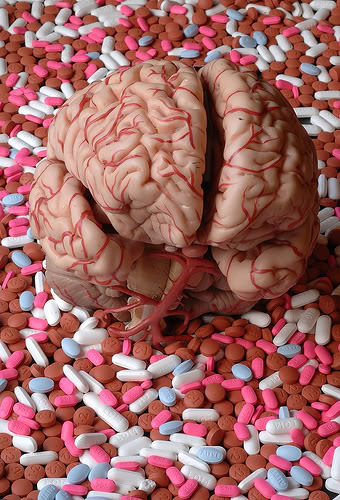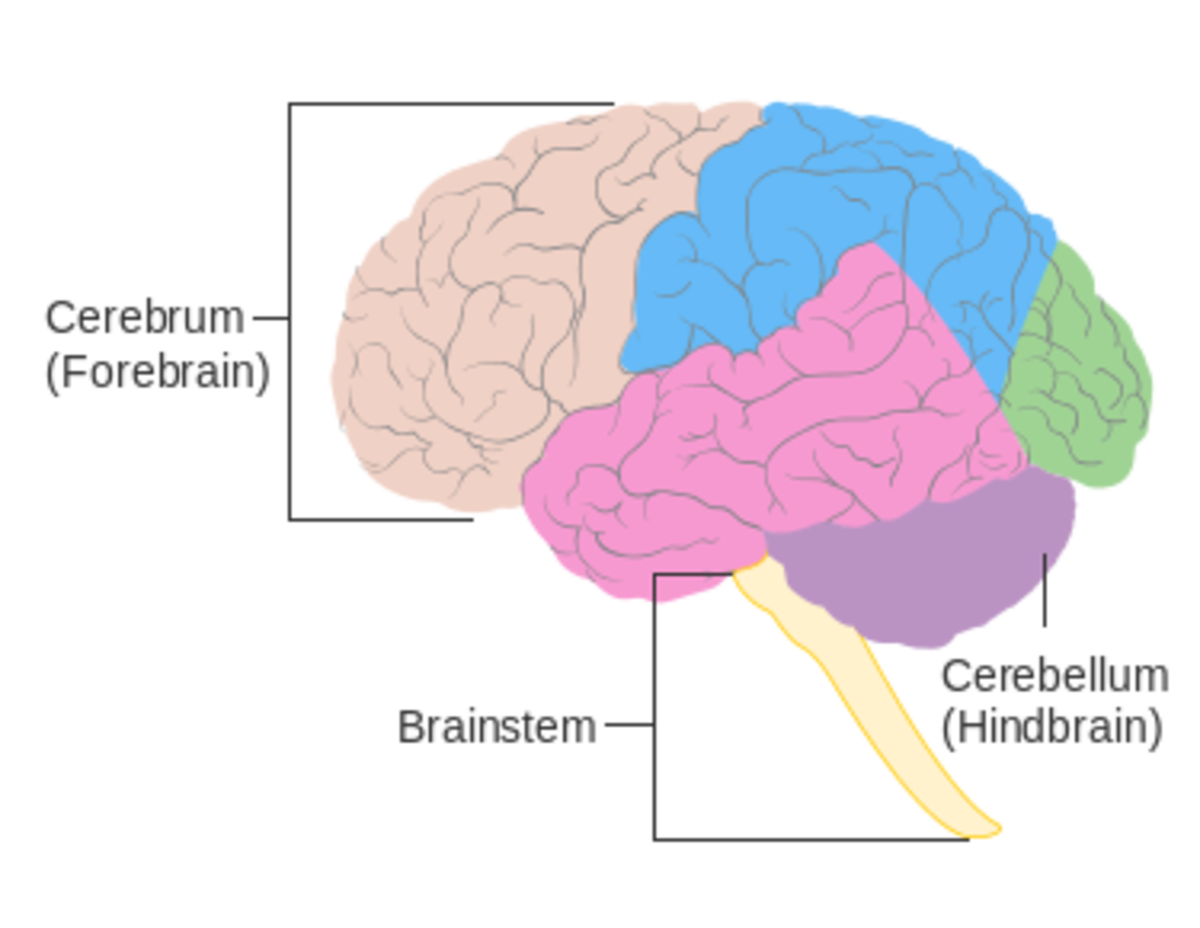Using Drugs In Brain Enhancement- Is It The Smart Way To Progress?

Just what does the term neuroethics mean? We often relate to an idea or action as ethical or unethical when we are determining whether the subject is in accordance with the accepted principles of what is right or wrong. Neuroethics is just that, with a specialization in the ethics of neuroscience, and deals with issues as a subclass of bioethics. William Safire, a writer and winner of the Presidential Medal of Freedom, defined neuroethics as “the examination of what is right and wrong, good and bad about the treatment of, perfection of, or unwelcome invasion of and worrisome manipulation of the human brain.”
The subject of neuroethics emerged about a decade ago, spurred by the recent successes in the study of human cognition and the progresses toward understanding social and emotional processes. This was exciting stuff, opening the way to the ability to explain, and even predict human behavior. Acquiring a clear understanding of the how and why of human behavior, brings with it, the ability to control it, and it is just this ability that has raised a host of ethical, legal, and social issues.
One of the hottest debate issues of neuroethics concerns the area of brain enhancement. We know that neuropsychiatric medications can and do improve function in patients with emotional and cognitive disorders. Cognitive disorders are those which involve cognitive abilities such as memory, perception, and problem solving. Alzheimer's disease, Delirium, Dementia, and Amnesia are representative of such disorders. Most people would agree that medicating these types of patients only serves to improve the quality of life they will experience. With the proper medication, the progression of some diseases can be slowed down, allowing the individual to continue for a longer period as an independent and contributing individual to society.
When speaking of emotional disorders, there is a wide range currently being treated with the use of drugs. Emotional disorders are generally thought of as a mental illness because there is a medical perception of a psychological or behavioral pattern, generally associated with distress or disability, occurring in an individual which is not considered to be a part of normal development or culture. There is a concern to some professionals over whether some of the conditions classified as mental disorders should actually be classified as neurological disorders.
One reason for rising questions of ethics has to do with how we define mental illness. Currently the view accepted is that mental illnesses involve disturbances of thought, experience, and emotion which are serious enough to cause functional impairment in people, making it more difficult to sustain interpersonal relationships, to continue in their jobs, and sometimes leading to self-destructive behaviors, including suicide. While protecting society from the destructive, and perhaps aggressive, behaviors of others is necessary to ensure personal freedoms of life and liberty, there are many gray areas of how to determine what is serious in relation to an individual's perception of their life. Is it our business or right to determine what is acceptable behavior or thought patterns if that person doesn't fall in line with our own patterns?
The trend of prescribing psychiatric drugs to enhance academic performance got its start about 30 years ago when Attention Deficit Disorder became the culprit for what appeared to be an epidemic of behavior problem children. The introduction of Ritalin became almost an overnight antidote for parents and teachers dealing with the energy sapping affliction. Though the chemical, methylphenidate was first made in 1944, it was packaged by the trademark name of Ritalin in the 60's. Widespread use of the drug to control hyperactivity in children reached its peak in the early 1990's, and has become an accepted method for controlling the disorder.

Though Ritalin is prescribed for its ability to help children focus on tasks, scientists have discovered that it directly enhances the speed of learning by increasing the activity of the neurotransmitter dopamine. The research showed that one type of dopamine receptor aids the ability to focus, and another type improves the learning.
Whether the choice is Ritalin, Adderall, or Provigil, there are many questions of ethics attached when considering them for intellectual stimulation. This use of the prescriptions is, in fact, what the term “brain enhancement” is referring to. While these drugs are regulated, requiring a prescription to purchase them legally, across the country, college students are using them for off-label purposes.
In December 2008, the scientific journal, Nature, published a paper calling for the legalization of brain enhancing drugs. The paper, titled “Towards a responsible use of cognitive-enhancing drugs by the healthy”, advocates that mentally competent adults should be permitted to engage in the use of such drugs. They contend that brain boosters aren't anymore unnatural than medicine, housing, and education.
Proponents for legalizing the drugs argue that nobody rejects pain killers for purposes of anesthesia, or the use of central air and heating, or even learning to read, though by definition, none of those activities are natural to human beings. They have become accepted as being a natural activity due to a gradual societal shift towards acceptance through progressive use. Their argument is centered on the belief that making moral distinctions between a brain altered by drugs or by education is arbitrary because the brain is being altered on the same neurobiological level.
There still remains the question of what happens if drug induced brain enhancement becomes widely accepted. If enough people engage in drug use for enhancement purposes, would that not create a new status quo? For instance, employers who are always looking for ways to increase productivity at reduced costs, could certainly make their use a requirement of being hired.
Both Ritalin and Adderall have been employed by students and professionals as a way to enhance their abilities of focus and to increase the absorption of educational/intellectual materials. Provigil promotes wakefulness, allowing users to go for days at a time without sleep, yet improves their memory. It doesn't require a leap in logic to realize how appealing the need for less sleep may be to prospective employers.
The debate has increased during the years since the Nature paper was first published. As numbers of students illegally popping pills for the purpose of enhancement rises, the question of whether to attempt to curb the practice or legalize it has come to the forefront. If the use of these enhancers are legalized, how does one go about protecting others' rights where freedom of choice comes into play?
There is also a very real concern regarding the long-term effects continued use of these drugs may have on an individual's physical health. George Annas, Chair of the health law and bioethics program at Boston University, doesn't argue about the morality or immorality of drug induced brain enhancements. According to Annas, the crucial difference is in the safety of each drug employed for such purposes. He maintains that pharmaceutical companies aren't likely to spend money on clinical trials regarding the safety of use in healthy people, if their products gain wide acceptance. He also doubts that any new drugs which reduce known side-effects of the present ones, will be discovered as, “very little in the body is isolated from everything else.”
The authors of the paper have waved aside concerns regarding unfair advantages of the wealthy student over those with less money. They contend that schools could give every exam taker free access to the drugs, thereby removing any question of competitive advantage. Recognizing that such a solution might produce pressure for students and/or workers to take drugs unwillingly in order to maintain a competitive edge, they call for policies to protect individuals from indirect, as well as direct, coercion.
Martha Farah, Ph. D. is a professor in the Department of Psychology, School of Arts and Sciences, and is one of the authors of the paper published in Nature. She recognizes the likelihood that acceptance of the drugs will create an expectation of keeping up with a “new higher standard.” However, she doesn't believe banning them is the answer. Her reasoning is simply that their use is already in practice. The solution to minimizing the harm should be geared toward developing better drugs, and promoting alternatives with sensible policies.
It is well and good to determine what we “should” do in regards to ethical questions. However, the reality is usually very different. The thirst for money and power can always be found as an underlying factor to almost any ethical question put forth. Who benefits most by permitting the use of brain enhancing drugs? The answer should be obvious.
The U.S. Department of Health and Human Services has reported that more than 20 million prescriptions are filled yearly to treat ADHD (usually Ritalin or Adderall). There has been more than a 72% increase in these prescriptions. A legalization of the drug for brain enhancement would see a minimum doubling of the demand for it. With these kinds of numbers, it's easy to see just who benefits from selling Americans on the need to alter behaviors.
Sticking to the use of Ritalin as an example of who may or may not be benefiting from use of brain enhancement, consider the side effects associated with the drug: nervousness, insomnia, headaches,dizziness, drowsiness, chorea-nervous disorder resulting in facial and body tics, depression, psychological dependence, heart palpitations, angina, hyper- or hypo-tension, nausea, anorexia, abdominal pain, weight loss, anxiety, tension, and glaucoma. Ritalin is also known to retard growth of all organs in the body, including the brain. No one knows whether any of these symptoms can be reversed.
Unless the public becomes involved in the debate, legalization is probably going to become a realization, as policy makers have inevitably proved to be on the side of the money makers.
If you find this information helpful or interesting, why not pass it on by clicking the Tweet, Like, or +1 buttons provided at the top of the page?
- The Need To Be Right
The Need To Be Right takes a look at what causes both skeptics and those who believe in a cause to become so extreme as to allow emotions to cloud better judgement. - Forum Opinions or Convictions?
Through confrontation in an online forum, the author takes a look at the difference of an opinion from a conviction. She also questions the effects of an opinionated hardliner on those of a milder nature. - Killer Coffee - brought to you by Donald Rumsfeld
How did the manufacturers of NutraSweet manage to get approval of their compound if it's as dangerous as we are told? The story is a common one where greed and financial power are blended with that of political power. - Personal Thought Control
Most people believe their thoughts are random events, popping into their heads unheeded. The truth is that we can control the formation of our thoughts, the sequence, and the final outcome. Personal thought control simply takes practice and recogniti








